Coastal Processes, Hazards and Society
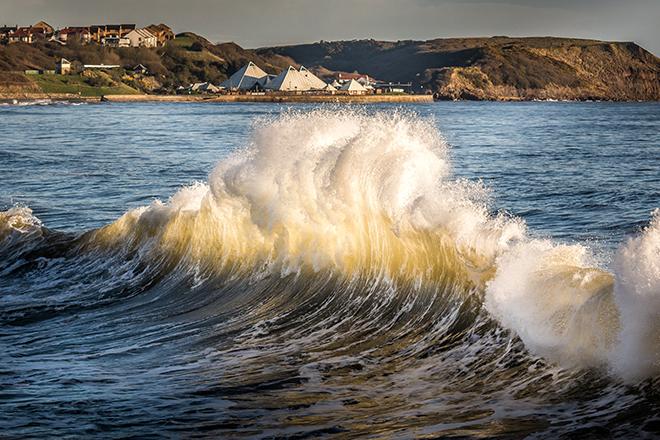
Credit: Wave 2444043 by TimHill is licensed under CC0
Resource Description
Has your attention recently been caught by news of coastal catastrophes such as hurricanes and tsunamis? Do you wonder why so many coastal communities in the world are vulnerable to flooding and other coastal hazards? Have you considered what coastal flood protections cities like Houston and Miami will need in the future to protect their residents? This course will provide a better understanding of these phenomena. We present a global perspective of coastal landscapes, the geologic processes responsible for their formation, and ways that society responds to hazards like sea level rise and catastrophic weather events. You will participate in active learning exercises such as analyzing real-world datasets and applying critical thinking to real-world societal problems while investigating a coastal community. Learn moreControversies in the Earth Sciences
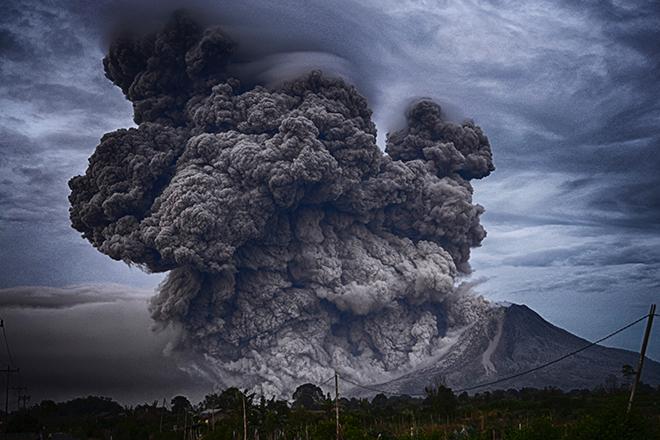
Credit: Ashers, volcano, eruption, landscape 1867440 by Pexels is licensed under CC0
Resource Description
Think science has all the answers? Think again. This course will use real, authentic data to explore and investigate modern controversies in Earth Sciences. Use tide gauge records to understand how countries around the world attempt to protect themselves from tsunami events. Process seismic data to predict earthquake recurrence in the New Madrid seismic zone, right here in the breadbasket of the US. Sort through the millions of years of the geologic timeline to shed some light on what actually did, and did not, kill the dinosaurs. Finally, use global atmospheric data to understand how misrepresentation of data can be used to paint a distorted view of past, present, and future climate. This course is no longer being offered for credit and has not been updated since 2018. Learn moreEarth in the Future
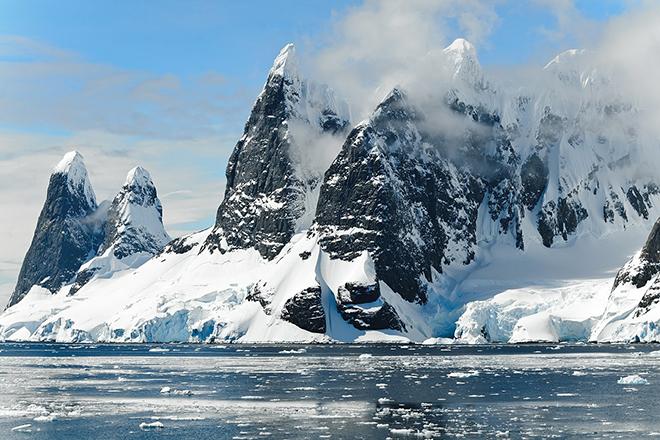
Credit: Mountains 482689 by Angie Agostino is licensed under CC0
Resource Description
Our planet is becoming hot. In fact, Earth may be warming faster than ever before. This warming will challenge society throughout the 21st century. How do we cope with rising seas? How will we prepare for more intense hurricanes? How will we adapt to debilitating droughts and heat waves? Scientists are striving to improve predictions of how the environment will change and how it will impact humans. Earth in the Future: Predicting Climate Change and Its Impacts Over the Next Century is designed to provide the state of the art of climate science, the impact of warming on humans, as well as ways we can adapt. Every student will understand the challenges and opportunities of living in the 21st century. Learn moreEarth Surface Processes in the Critical Zone
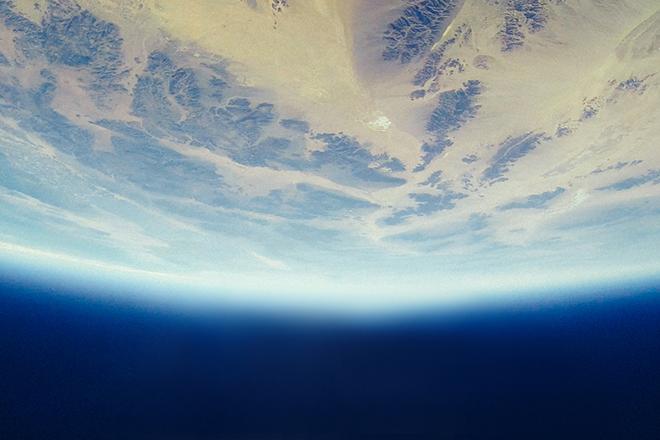
Credit: Blue and Gray Moon during Nighttime by Jaymantri is licensed under CC0
Resource Description
Rapid changes at Earth's surface, largely in response to human activity, have led to the realization that fundamental questions remain to be answered regarding the natural functioning of the Critical Zone, the thin veneer at Earth's surface where the atmosphere, lithosphere, hydrosphere and biosphere interact. EARTH 530 will introduce you to the basics necessary for understanding Earth surface processes in the Critical Zone through an integration of various scientific disciplines. Those who successfully complete EARTH 530 will be able to apply their knowledge of fundamental concepts of Earth surface processes to understanding outstanding fundamental questions in Critical Zone science and how their lives are intimately linked to Critical Zone health. Learn moreEnergy and the Environment

Credit: Home Energy by George Hodan is licensed under CC0 1.0
Resource Description
Our world runs on energy - without it, things come to a screeching halt, as the recent hurricanes have shown. Ever stop to wonder what our energy future is? What are our options for energy, and what are the associated economic and climatic implications? In "Energy and the Environment" we explore these questions, which together represent one of the great challenges of our time - providing energy for high quality of life and economic growth while avoiding dangerous climate change. This course takes an optimistic view of our prospects, and we'll see how shifting to renewable energy can lead to a viable future. Learn moreEnergy Conservation for Environmental Protection

Credit: Lightbulbs by Dreamstine is licensed under CC0
Resource Description
Much of the general population believes that the energy sources we depend on are perpetual. While people believe that energy use is the culprit for environmental damage, they are not aware of the methods and principles by which energy conversion devices operate. This course will provide you with knowledge and information on the main operating principles of devices/appliances in common use and will help you in making energy efficient and economical choices. The objective of the course is to expose you to energy efficiency in day-to-day life in order to save money and energy and thereby protect the environment. I hope the information in this course will help you become an environmentally-responsible individual of this Global Village. Learn moreEnergy in a Changing World
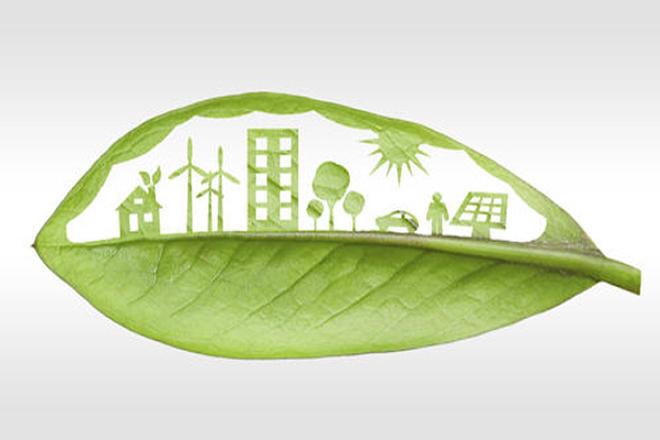
Credit: Green city concept, cut the leaves of plants, isolated over white by kirillov alexey, licensed through Shutterstock used with permission
Resource Description
What is energy? It's the hot in heat, the glow in light, the push in wind, the pound in water, the sound of thunder and the crack of lightning. It is the pull that keeps us (and everything else!) from simply flying apart, and the promise of an oak deep in an acorn. It is all the same, and it is all different. Sunshine and waterfalls won't start your car, and wind won't run the dishwasher. But, if we match the form and timing of the energy with your needs, all of these things could be true. Energy in a Changing World is about the full arc of energy transformation, delivery, use, economics and environmental impact, especially climate change. Learn moreEnergy Policy
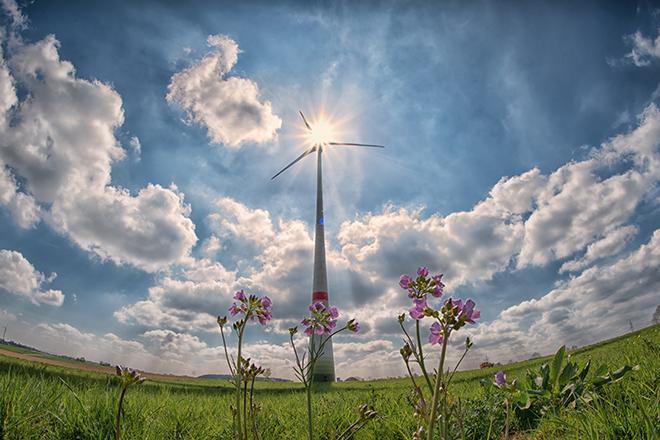
Credit: Purple Flowers by winterseitler is licensed under CC0
Resource Description
Energy policy sits at the crossroads of science and policy. And now, energy and climate policy are inextricably linked; the policies we choose have very real consequences for our climate. This intersection of science and policy is chaotic and bustles with activity motivated by various competing (and conflicting) interests and factors. We must understand the motivations driving them and bridge the divides between our reliance on fossil fuels and our need to transition to less carbon-intensive and renewable alternatives. While the science and math behind these problems is often fairly straightforward, the politics and behavioral changes are not. Come stand at this busy intersection with us as we navigate toward progressive climate policy alternatives at all scales of governance! Learn moreEnvironment and Society in a Changing World
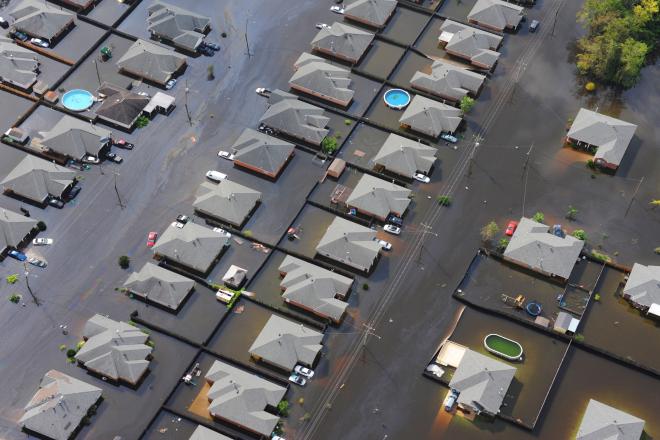
Credit: Ariel view of a flooded neighborhood near New Orleans by Petty Officer 1st Class Matthew Schofield is Public Domain
Resource Description
What factors lead to a natural disaster? What causes a famine? Why do cities flood? According to a recent article in The Atlantic, Houston's flooding during the 2017 Hurricane Harvey was primarily caused by impervious pavement which prevents the absorption of water into the land. This example illustrates how nature and society are interlinked, which is the main focus of Geography 30, Penn State's introductory course to nature-society geography. In addition to examining the linkages between human development and natural hazards, this course will also explore human society's connection to food systems, climate change, urbanization and biodiversity. The course will also cover topics of ethics and decision making in order to help students evaluate the tradeoffs of these interconnections. Learn moreEnvironmental Challenges in Spatial Data Science
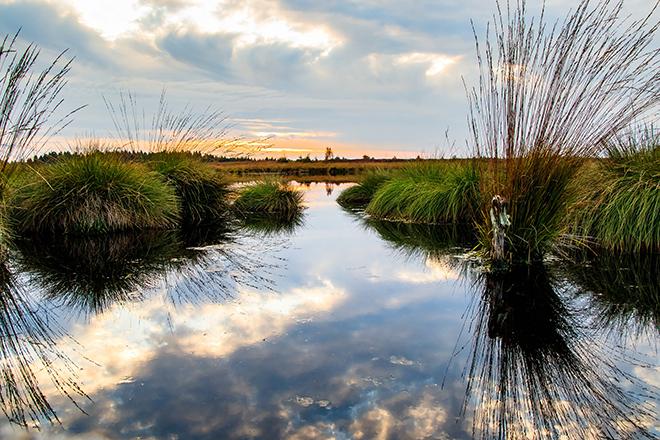
Credit: Moor Swamp Landscape Nature Nature Reserve by herbert2512 is licensed under CC0
